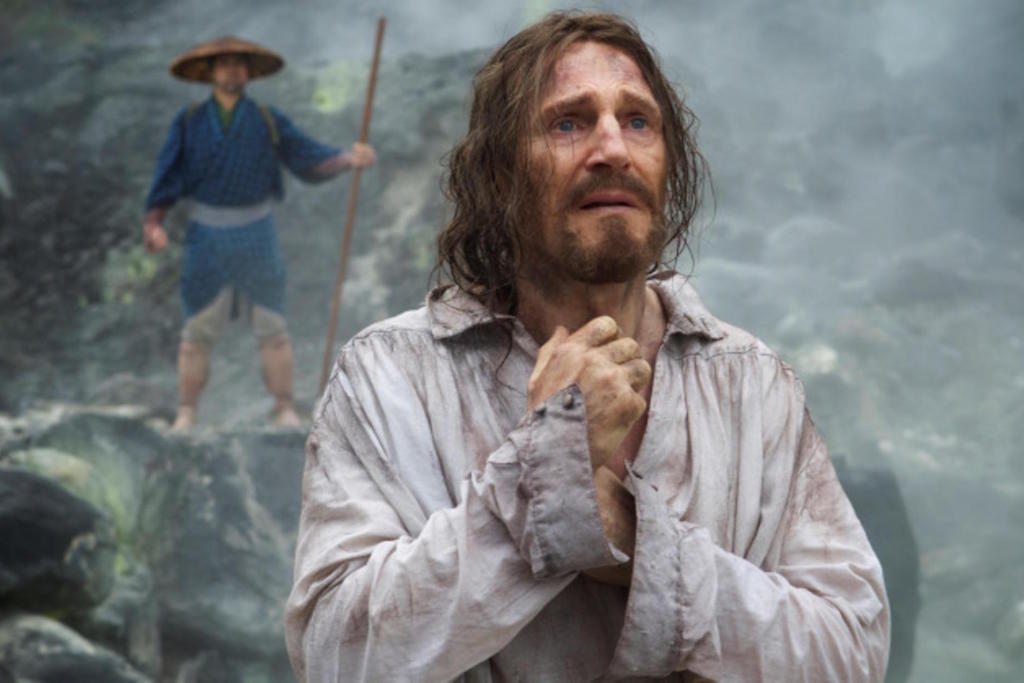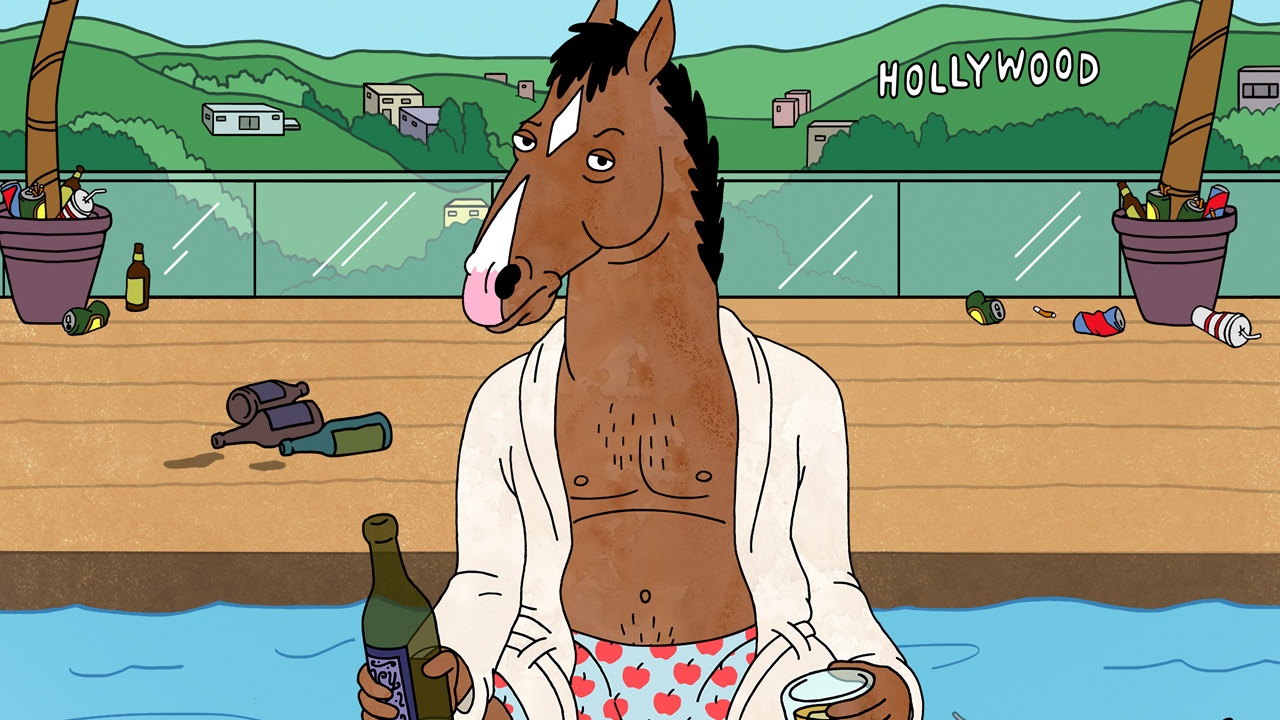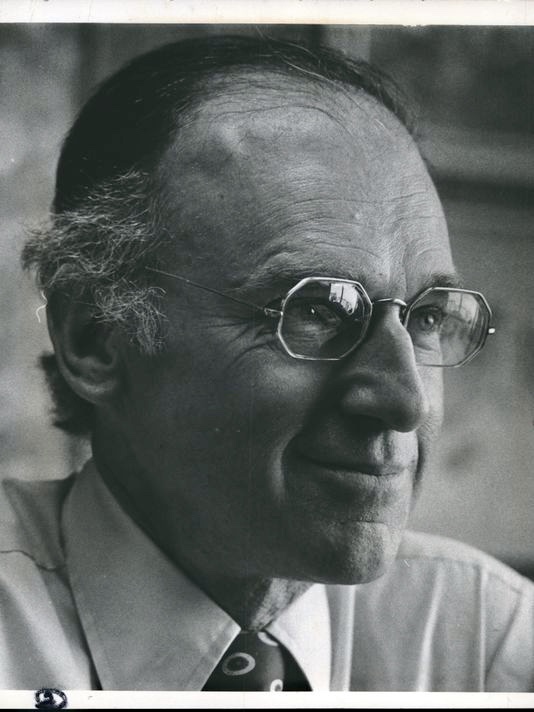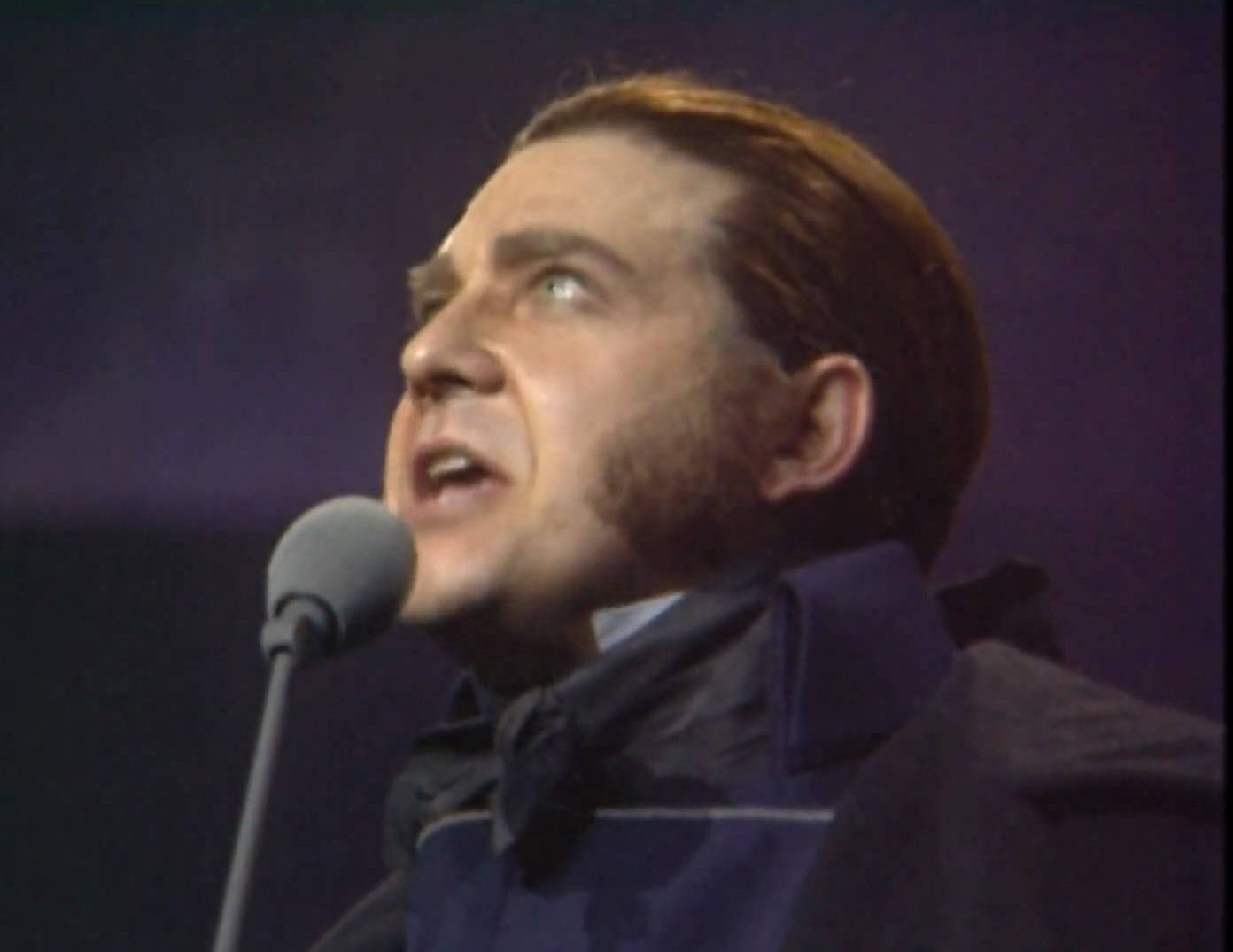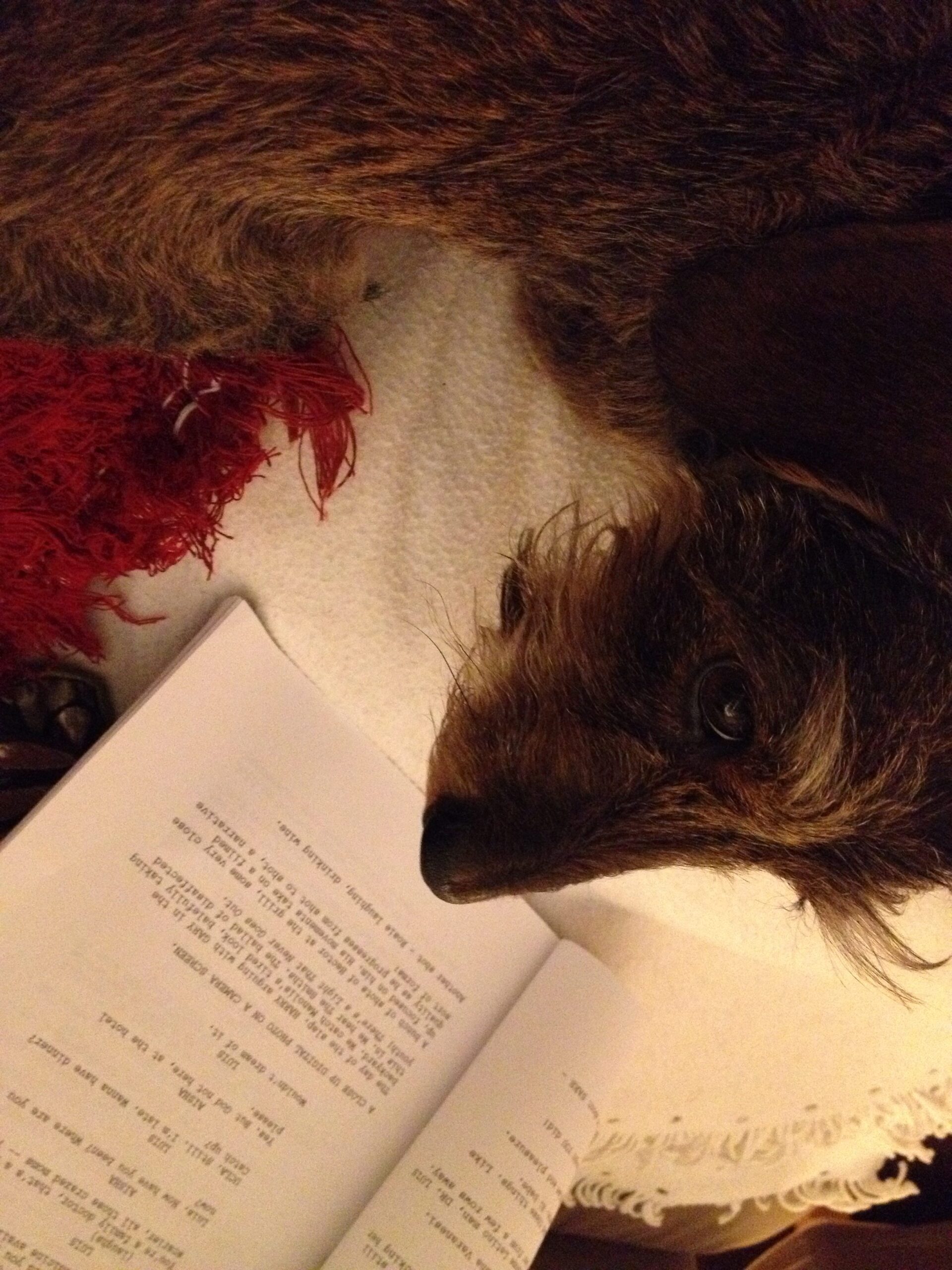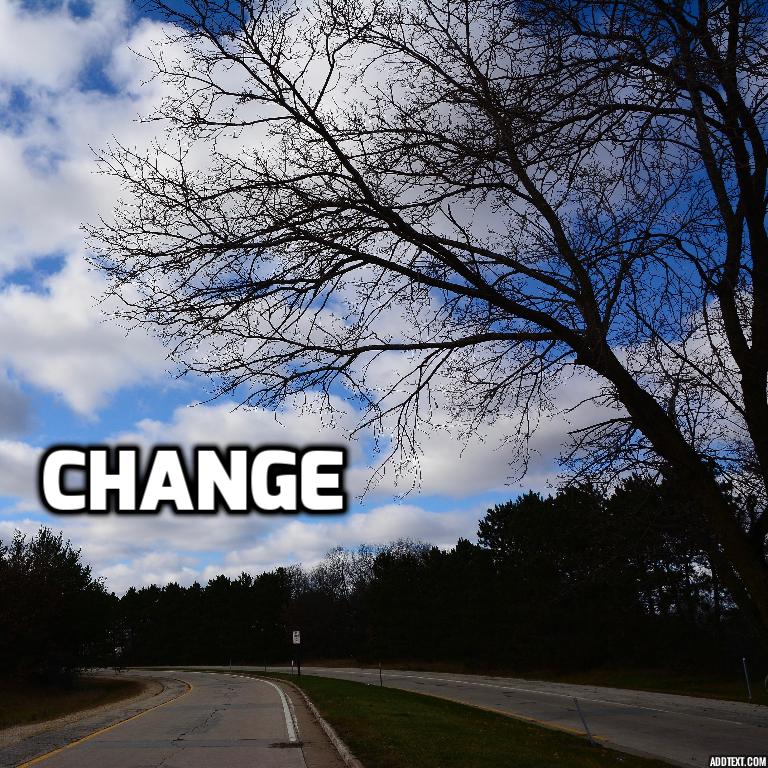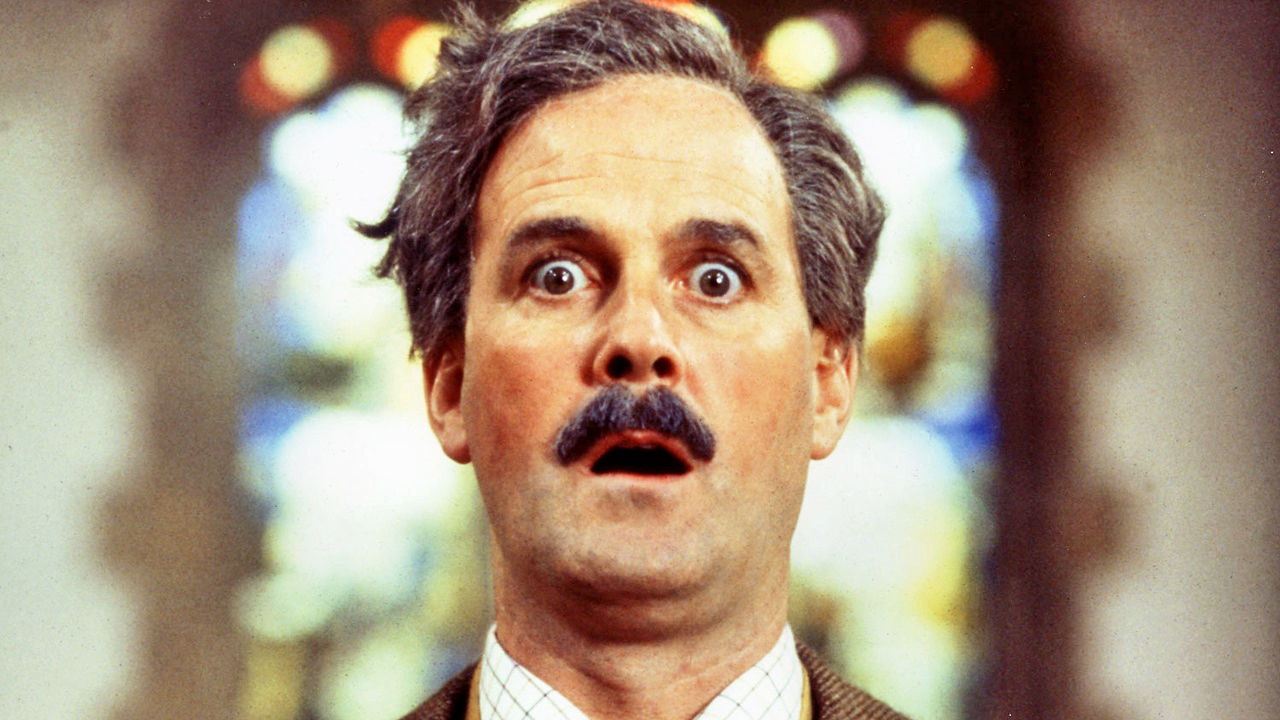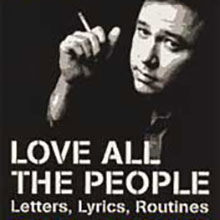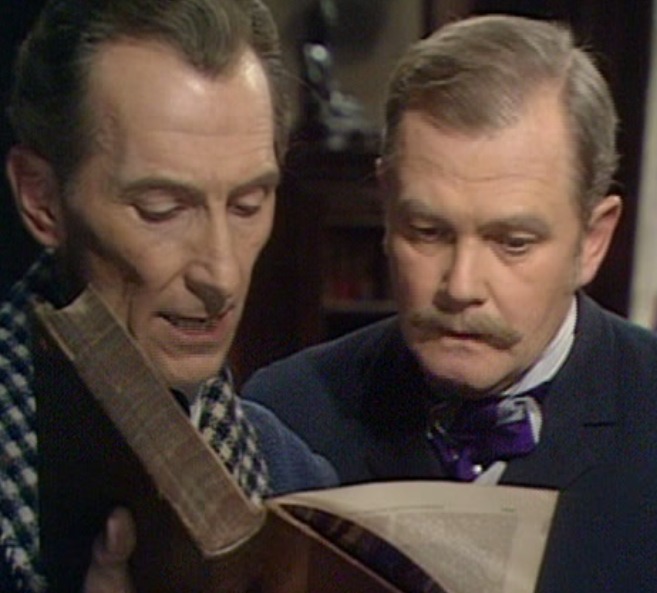Audiences Reward Movie Franchises When They Take Time and Care
Continue reading#ThinkpieceThursday – Rev. and Crisis of Faith
#ThinkpieceThursday – Best British Sitcom in years depicts Crisis of Faith
Continue reading#TypesTuesday – Your Character’s Faith
#TypesTuesday – Consider The Impact Of Faith When Writing Your Characters
Continue reading#ThinkpieceThursday – Katy Perry’s Inappropriate Kiss
#ThinkpieceThursday – “No thanks” means “No”. #MeToo applies to everyone.
Continue reading#MondayMusings – Stones and Bones
#MondayMusings – The Dawn of Humankind
Continue reading#WritingAdviceWednesday – The Pitch South Africa #ETBSA
#WritingAdviceWednesday – View the finalists for The Pitch South Africa
Continue reading#ThinkpieceThursday- Bojack Horseman: Can a character truly be beyond redemption?
#ThinkpieceThursday – Can a character ever truly be irredeemable?
Continue readingIN MEMORIAM
In Memory of Irvin B Charne
Continue reading#MondayMusings – Learning French to Lose Weight
#MondayMusings – Learning French to Lose Weight
Continue reading#ThinkpieceThursday – American Adaptations
#ThinkpieceThursday – Super Size Me mentality ruins American Adaptations
Continue reading#TypesTuesday – Anthems for Power of Conscience
#TypesTuesday – Songs that demonstrate the Power of Conscience
Continue readingNew Year’s in Paris
#MondayMusings – Bonne Année!
Continue reading#ThinkpieceThursday – Power vs Influence
#ThinkpieceThursday – The definitions of influence and power
Continue reading#MondayMusings – Saying Thank You to My Socks
#MondayMusings – Saying Thank You to My Socks
Continue reading#ThinkpieceThursday – Music in Film
#ThinkpieceThursday – Music elevates emotion. It should NOT tell you how to feel
Continue reading#ThinkpieceThursday – Deep Dread of Uncertainty
#ThinkpieceThursday – Dreading Change
Continue readingGenre Is Meaningless
#ThinkpieceThursday – Chinatown and Apocalypse Now are the same film
Continue reading#ThrowbackThursday- Aardman, Bristol and Me
#ThrowbackThursday – Why I moved to Bristol
Continue reading#ThinkpieceThursday – 30 Something Turns 30
#ThinkpieceThursday – A seminal show turns 30… Where is the follow up?
Continue reading#MondayMusings – Awesome Oslo
#MondayMusings – Awesome Oslo always delights
Continue readingYou Okay?
#MondayMusings – A matter of survival
Continue readingI Love Bank Holidays
#MondayMusings – There’s nothing like a Bank Holiday to make life more joyful
Continue readingAlternative Workspaces
#MondayMusings – I am often happiest writing outside my office
Continue readingPacking for Business Travel
#MondayMusings – Top Tips for business travel
Continue readingCoincidence? Or Not?
#MondayMusings – Meaningful random happenings or just random?
Continue readingPacking for Bristol
#MondayMusings – Meet my Secret Weapon
Continue readingIsolation
Isolation is part of the DNA of great movies
Continue readingThe Comedy and Drama of Change
#ThinkpieceThursday – Writers are advised to write what you know. What we know the most about is change.
Continue readingJohn Cleese on Creativity
The brilliant comedian tackles the serious subject of creativity.
Continue readingTracy Flick & Hillary Clinton – Power of Conscience
#TypesTuesday – Tracy and Hillary are Power of Conscience unleashed.
Continue readingVladimir Putin – Power of Will
Stalin and Putin: Power of Will.
Continue readingGreat Comedy Advice from Bill Hicks
#WritingAdviceWednesday – Comedy And Screenwriting Tips.
Continue readingInteresting vs Profound
The most entertaining stories incorporate elements that are both interesting AND have some kind of deeper meaning. All great movies have both.
Continue readingRudolph the Red-Nosed Reindeer as a Classic Hero
Rudolph tells us all we need to know about heroes.
Continue readingCelebrate the Small Victories!
#MondayMusings – Too often we are so focused on where we are going, we forget how far we’ve come.
Continue readingFast for Writing Fitness
I strongly recommend that you take a break from all factual and fictional media stories to get over a block in your story.
Continue readingAdaptation
I’ve been working with Enter the Pitch, which runs a short film competition with a £25,000 prize to make a short film. The subject must be inspired by a character or story in the Bible. Choose from an amazing range of powerful, dynamic, complex, troubled characters in stories that have persisted for thousands of years.
Continue readingThree Simple Keys to Writing Success
Writing is writing regardless of what kind of writing it is. Here are three key tips for success.
Continue readingUnspoken Communication
#WritingAdviceWednesday – It’s what’s not on the page that’s important.
Continue readingVideo of Laurie teaching at Enter the Pitch Residential Weekend
Video of Laurie “Character is Action.”
Continue readingEgo vs Misson: Want vs Need
#WritingAdviceWednesday – Your calling is “the place where your deep gladness meets the world’s deep need.”
Continue readingVladimir Putin – Power of Will
Power of Will characters take what they want, fight for every inch of turf, refuse to show any weakness themselves and pounce decisively on the weakness of others.
Continue readingMake the Strongest Choice
The higher the stakes for the character the more the audience cares about what happens next.
Continue readingNigella Lawson and her Recent Troubles
A Power of Love character and a Power of Will character battle it out in court and in the press.
Continue readingLessons from eQunioxe Scriptwriting Workshop
The answer to this these questions provides a critical overview of the story. If they aren’t answered clearly then it doesn’t matter how good the individual scenes might be. The story won’t add up to much or hold together properly.
Continue readingThe Golem
In folklore a Golem is a drawn from formless matter. The problem is that eventually this being turns on its creators and does terrible violence to those who raised the monster from the unformed mass.
Continue readingDexter Finale vs The Breaking Bad Finale
The difference between the Dexter series finale and the Breaking Bad series finale is the difference between exposition and revelation.
Continue readingCasualty
There are a number of ways to approach being in the medical profession in a drama.
Continue readingChildren’s Media Conference in Sheffield UK
If you are interested in family programming The Children’s Media Conference is for you.
Continue readingA Few Observations About Life in Europe & the UK
I’ve been living in Bristol for about three months now, interspersed with frequent trips to the Continent. Here are some general observations on a few key differences with the US.
Continue readingJoin Me In Sweden in April and May
I will be in Stockholm from April 29 to May 5. I will be meeting one-on-one with writers, producers, and productions executives but there are three workshops open to the public.
Continue readingSummer Workshop in Italy
Friend and colleague from UCLA, Paul Chitlik, now a clinical assistant professor at Loyola Marymount University’s School of Film and Television, holds a residential writing seminar in Europe every summer. This year, the seminar is in Cairo Montenotte, Italy.
Continue readingLuck to Start the New Year
#MondayMusings – How to be luckier in the New Year
Continue readingWhat Gangnam Style Tells Us about Writing
What does the Gangnam Style song and dance video have to do with writing? Ralph Waldo Emerson said it best–
Continue readingZig Ziglar Rules for Success
#ThinkpieceThursday – Here are Ziglar’s top ten rules for success– with my comments on how they apply to writing.
Continue readingNordkapp Film Festival
#MondayMusings – Time to become a travelogue for a while!
Continue readingFollow me on Pinterest
Follow my collection of Character Type examples on Pinterest
Continue readingJ.K. Rowling’s Handwritten Plot Sheet
Always interesting to see how other writer’s think and conceptualize. Even more interesting when the novel is a hit.
Continue readingBrave from Pixar – How Good is Good Enough?
“The standout characters, exciting set pieces and memorable songs that we’ve come to expect are absent. The truest advertising tagline would be, “From the studio that brought you ‘Cars 2.'”
Continue readingPost This Above Your Computer
Ten steps to becoming a better writer
Continue readingGetting to the Heart of the Story
What kind of art project would help you get to the Heart of the Story?
Continue readingAdvice from John Steinbeck
John Steinbeck, a Pulitzer Prize winning author (Grapes of Wrath) and Nobel laureate offers six basic tips on writing.
Continue readingWhat is Power?
Different Character Types have very different views of what power is.
Continue readingThriller Conundrums
All great Power of Truth stories — mysteries, thrillers, suspense, and detective stories answer these key questions.
Continue readingFilm Adaptation with Michael Ondaatje
Film (apart from the adapted novel) must become something quite distinct, with its own DNA.
Continue readingApril 2012 – Writing Lessons from Norway
Here are three key take-aways from a workshop in Norway about common issues that make a film project less effective and less emotionally compelling.
Continue readingApril 2012 – Mountain Train to Oslo
The train ride from Bergen to Oslo is one of the most spectacular in all of Europe.
Continue readingApril 2012 Ullensvang Hotel – Film Summit







April 2012 Bergen, Norway
Pictorial journey through Bergen while there presenting a workshop.
Continue readingThe Hunger Games & Twilight
#ThinkpieceThursday – The Hunger Games has great characters and a Power of Truth story structure- an unbeatable combination.
Continue readingHow to Evaluate Stories
How to Evaluate Stories is a great little guide to finding story problems and fixing them fast!
Continue readingWorkshops & Consulting in Norway
April 2012 Master Class in Bergen Norway
Continue readingThe Role of Impulse in Creating Three Dimensional Characters
#ThinkpieceThursday – A character’s Immediate Response is where the character goes first emotionally.
Continue readingAverage Is Over
#WritingAdviceWednesday – I’ve distilled everything I know about story analysis into a short eBook.
Continue readingLiterary Tattoos
I believe fiction is a mirror in which see ourselves– that is why “author’s intent” is never as important as “reader’s (or viewer’s) perception”.
Continue readingRepetition and Reflection
It turns out that just putting in hours and hours at your chosen writing work is not enough; the only way to get better is to make sure you’re devoting those hours to what the researchers call “deliberate practice.”
Continue readingPlot vs. Character
I believe that if you want your stories to endure, then plot must come from character and not the other way around. I have often said that storytellers are the most powerful people on earth– because they have the power to move the human heart. There is no greater power on earth. You cannot move hearts by relying on plot mechanics.
Continue readingVulnerability
I saw this speech by Brene Brown about vulnerability and fear on a Ted Talk. Everything she says applies to writing and is part of the Character Map eBook.
Continue readingA Sense of Humor
Do you have a sense of humor about yourself? Doing serious work demands not taking your success, your failures or yourself too seriously. Not doing so is a serious mistake.
Continue readingScreenplay Competitions
There are a lot of dubious screenplay competitions out there but BlueCat is worth entering.
Continue readingWords of Wisdom from Francis Ford Coppola
#WritingAdviceWednesday – Always make your work personal, and you never have to lie
Continue readingThe Paris Wife
The Paris Wife is a fascinating portrait of a Power of Love character (Hadley Richardson) and a Power of Will character (Ernest Hemmingway) living and loving in Paris of the 1920’s.
Continue readingWhat Your Comments Mean
#MondayMusings – If you want to make a writer’s heart soar today, engage with their post.
Continue readingGod Grew Tired of Us – Day Forty – #40movies40days
God Grew Tired Of Us chronicles the horrific journey of three young men, John Bul Dau, Daniel Pach and Panther Bior, across war-torn Sudan and finally to the United States.
Continue readingRififi – Day Thirty Nine – #40movies40days
Rififi is a 1955 French crime film that is probably the basis of every intricate heist movie you’ve ever seen
Continue readingThe Secret Life of Words – Day Thirty Eight – #40movies40days
Sarah Polley gives a mesmerizing performance as a young woman whose silence is her protection from terrors she’s seen.
Continue readingTriage – Day Thirty Seven – #40movies40days
Injured and traumatized war photographer, Mark (Colin Farrell), returns home from a photo assignment in Kurdistan. He returns alone. He professes to have been separated from his best friend Colin. Unravelling the mystery of what happened is key to his recovery.
Continue readingFrida – Day Thirty Five – #40movies40days
Julie Taymor does a wonderful job mixing the surrealism of Frida’s paintings with the story of her life. The film almost makes you feel like you are inhabiting Frida’s work.
Continue readingCity of Joy – Day Thirty Four – #40movies40days
The ability to find joy in even the most dire situations and circumstance is at the heart of this story
Continue readingHot Tub Time Machine – Day Thirty Three – #40movies40days
Hut Tub Time Machine is a raunchy but ultimately sweet tale of friendship, past regrets, second chances and how our past can haunt us.
Continue readingSaint Ralph – Day Thirty Two – #40movies40days
Saint Ralph is a slight Canadian film, but highly enjoyable. It’s whimsical, funny and features fine performances.
Continue readingDog Day Afternoon – Day Thirty One – #40movies40days
Today Dog Day Afternoon is an unabashed classic, a template by which other movies are based and a formula which is periodically tweaked and refined.
Continue readingForeign Correspondent – Day Thirty – #40movies40days
Foreign Correspondent, directed by Alfred Hitchcock, is a great complement to The Quiet American. Again, two men fighting for different sides are caught in a triangle over a girl.
Continue readingSomewhere – Day Twenty Seven – #40movies40days
Somewhere is an odd little film but I rather liked it.
Continue readingAnvil: The Story of Anvil – Day Twenty Six – #40movies40days
Anvil: The Story of Anvil is a testament to the human spirit, the passion that drives every creative person and the power of positivity and perseverance.
Continue readingDid You Hear About The Morgans – Day Twenty Five – #40movies40days
This movie demonstrates conclusively that an actor’s persona is no replacement for actual character development in a script.
Continue readingThe Mating Season – Day Twenty Four – #40movies40days
The Mating Season is a good old fashioned Power of Love story in the best sense of the word.
Continue readingThe China Syndrome – Day Nineteen – #40movies40days
The China Syndrome is a fast-paced socially conscious thriller that entertains and is surprisingly contemporary.
Continue readingThe Town – Day Eighteen – #40movies40days
Town, directed by Ben Affleck, revisits Good Will Hunting territory. It’s good solid entertainment.
Continue readingBright Star – Day Seventeen – #40movies40days
Bright Star starts a bit slowly but builds and burns with a growing intensity. The longing, the loss, the passion and the separated lovers make it a classic Power of Idealism film with two young Power of Idealism lovers.
Continue readingIn A Lonely Place – Day Sixteen – #40movies40days
This is the classic Humphrey Bogart film you’ve probably never seen. It’s director Curtis Hanson’s favorite film.
Continue readingRabbit Proof Fence – Day Fifteen – #40movies40days
The Rabbit Proof Fence is a powerful story of survival, hope and the triumph of the human spirit. Three young girls walk 1,500 miles to return to their mother and aboriginal homelands.
Continue readingArranged – Day Fourteen – #40movies40days
Arranged is the story of Rochel, an observant Orthodox Jewish woman, and Nasira, a devout Muslim woman. The two form an unlikely friendship at the public school where they both teach fourth graders.
Continue readingNothing But The Truth – Day Twelve – #40movies40days
“Nothing But the Truth” is a finely-crafted film of people and ideas. It is charged with incredible emotional urgency.
Continue readingThe Wages of Fear – Day Eleven – #40movies40days
The Wages of Fear (the French title is: Le Salaire de la Peur) is a directed by Henri-Georges Clouzot and stars a young Yves Montand. It’s a classic French thriller as fresh and contemporary today as it was the day it was made (almost 60 years ago).
Continue readingPonyo – Day Ten – #40movies40days
The film tells the story is about a curious “daughter of the sea” (Ponyo) who is rescued by a very young boy. Sosuke must promise to love Ponyo in whatever form she appears to him.
Continue readingThe Deer Hunter – Day Nine – #40movies40days
The Deer Hunter doesn’t hold up after 20+ years. Strong performances by a very young Robert De Niro, Christopher Walken and Meryl Streep are not enough to salvage the film.
Continue readingMy Dog Skip – Day Seven – #40movies40days
My Dog Skip is a great family film. It is an instant streaming film on Netflix and a worthy addition to your queue.
Continue readingBaby Face – Day Six – #40movies40days
The film is notorious for its unrelenting and unsavory look at women’s lack of power in society and commerce (except for sexual power). Baby Face was the film that finally compelled the movie studios to enforce the Hays Office production code that would, for decades, censor American movie morality.
Continue readingThe Shopworn Angel – Day Five – #40movies40days
Pettigrew’s pure honest example teaches Daisy and her boyfriend Sam the meaning of real love.
Continue readingThe Adjustment Bureau – Day Four – #40movies40 days
Much has been written about who the Adjustment Bureau is– are they angels and is the “chairman” God? Let’s look at what the bureau does– it creates a hunger in people that can be directed to fulfill the bureau’s plan.
Continue readingThe Woman in the Window – Day Three – #40movies40days
We lose our integrity bit by bit, decision by decision, one small choice at a time. Thoughts (or fears) create action. Action creates habits. Habits build (or destroy) Character. Character creates Destiny.
Continue readingDogtooth – Day Two – #40movies40days
Last night I saw Dogtooth, the 2011 Academy Award nominated Best Foreign Language Film from Greece. There’s going to be no rhyme or reason in selecting the films for my 40 movies in 40 days project. I’ve decided to go wherever the spirit leads me.
Continue readingRango and My Own Lenten Observance – #40movies40days
I’ve decided to watch 40 films in 40 days and write about them from a personal standpoint as I puzzle through how I want to be reborn on Easter morning. It will be a journey of looking at my life through the lens of movies– some contemporary and some old school– I hope you will join me.
Continue readingJerry Seinfeld’s Writing Success Secret
Jerry Seinfeld shares the secret to great writing– comedic or otherwise.
Continue readingWhat is an American Film?
Howard Suber argues there is no such thing as an “American” film any more.
Continue readingNew International MA Program in Screenwriting
With international co-productions so important in Hollywood, this international MA in Screenwriting is a way to make the overseas contacts that lead to success.
Continue readingTHE OTHER WOMAN and Video on Demand
#ThinkpieceThursday – Eric Kohn gives an interesting take on the strengths and weakness of VOD
Continue readingThe Hollywood Kiss on Screen
On this chocolate, hearts and flowers giving day it’s important to remember every love story or buddy story or partnership story is about the exchange of gifts. Happy Valentines Day
Continue readingNFL Leadership Styles – Can You Help?
Sometimes it is really useful to look at the Character Types of real people to see how what they do or say defines them. The SuperBowl and the magnificent victory by Green Bay and their young quarterback Aaron Rodgers is a great example to start off with. I’d like to type all the major players in the NFL in terms of their leadership styles. I’m looking for some help here– with quotations or a link to a video as an illustrations. Can you help fill things out?
Continue readingMy Day at Pixar
I spent an amazing day at Pixar on Tuesday. I was doing a Character Map session with some of their writers, artists, directors and others. It’s easy to spot people coming to Pixar for the first time. They’re the ones, like me, walking around trying to soak in all the wonderful visuals in the building and snapping pictures like mad. Here are some of mine–
Continue readingMcKee on 2011 Best Screenplay
Here is Robert McKee’s views on Best Screenplay and on stories based on history, fact or actual people’s lives. Like McKee, I believe that a writer’s first duty is to the emotional truth of the story, not factual accuracy. That’s why it’s FICTION.
Continue readingETB Now on Facebook!
Please take a moment to visit our new Facebook page and “Like” our page
Continue readingMark Zuckerberg on SNL
The lesson here is FaceBook and Zuckerberg’s deft handing of The Social Network movie. Despite being a fictional and immensely unflattering protrait, Zuckerberg wisely refrained from going ballistic in the press– which wouldn’t have helped and would have only made him look worse. Now he is at the point of being able to laugh at the whole thing and wins points for not taking himself too seriously.
Continue readingSkins: No Consequences
#ThinkpieceThursday – Dramas that don’t work often don’t attach a price to the choices a character makes.
Continue readingIt Never Gets Easier
Here is the good news and the bad news about being a writer– “It never gets any easier.” Every writer from an Academy Award winner to a complete beginner face the same challenges, obstacles and terrors
Continue readingDay Five at eQuinoxe
Working on a script with a group of advisors is never a linear process.
Continue readingDay Four at eQuinoxe
The function of film and television is not to provide a reflection of the world, but to provide a compensation for it.
Continue readingDay Three at eQuinoxe
Your antagonist is your protagonist’s main adversary. This person is not necessarily evil or bad, but he or she is a significant obstacle to your main character’s goal.
Continue readingDay Two at eQuinoxe
When a script isn’t working well, isn’t as compelling a read as it should be or has some kind of emotional disconnect in the story the problem is usually the lack of a clear compelling and well-developed Want, Need or Price.
Continue readingDay One at eQuinoxe
#MondayMusings – The workshop advisors all arrived today.
Continue readingArrival in Munich
#MondayMusings – Arrival bliss at Schloss Elmau for eQuinoxe Germany
Continue readingTony Curtis – Power of Ambition
 Tony Curtis passed away at the end of September 2010. Here is what Time Magazine has to say about one of the roles that defined him as an actor, Sidney Falco in The Sweet Smell of Success. It is a stunning example of a Power of Ambition protagonist falling to the Dark Side.
Tony Curtis passed away at the end of September 2010. Here is what Time Magazine has to say about one of the roles that defined him as an actor, Sidney Falco in The Sweet Smell of Success. It is a stunning example of a Power of Ambition protagonist falling to the Dark Side.
(In the film) Sidney Falco, Broadway publicist, is telling his secretary Sam how far he wants his ambitions to take him: “Way up high, Sam, where it’s always balmy. Where no one snaps his fingers and says, ‘Hey, Shrimp, rack the balls!’ Or, ‘Hey, mouse, mouse, go out and buy me a pack of butts.’ I don’t want tips from the kitty. I’m in the big game with the big players. My experience I can give you in a nutshell, and I didn’t dream it in a dream, either. Dog Eat Dog. In brief, from now on, the best of everything is good enough for me.”
An actor doesn’t often get a role that upends his Hollywood image and reveals his inner demons. Tony Curtis, who died Wednesday at 85 of cardiac arrest at his home near Las Vegas, found that dream-nightmare part in the 1957 Sweet Smell of Success. Sidney Falco, a name that replaced Sammy Glick as the slick nogoodnik par excellence, is a pretty boy on the make — all hustle, no morals, and with a line of patter like petty larceny…
…Another refugee from the New York streets, and one of the first postwar actors to produce his own movies, (Burt) Lancaster … cast him in Sweet Smell as Sidney, the publicist trying to get his clients’ items in the gossip column written by Lancaster’s J.J. Hunsecker.
In the script, by Ernest Lehman and Clifford Odets, Sidney’s status floats between villain and victim — he peddles flesh and secrets, and pins the Commie label on an innocent young musician, before getting climactically framed by J.J. — but (actor) Curtis was the victor in the movie. It’s easy to imagine that, that when the actor first read this script, he thought exultantly, “That’s me all over!” A shark in the Broadway aquarium, Sidney looked like a million bucks, all counterfeit. FULL ARTICLE HERE
A character driven by the Power of Ambition can be a hardworking, eager, charming optimist with a “can-do” spirit— or a lying, manipulative, backstabbing striver who will do anything to get ahead in life.
The definition and meaning of “success” is at the heart of a Power of Ambition character’s story. The basic question for this character’s emotional journey is: “What does it profit a person to win the whole world but lose his or her own soul?”
That what we watch Sidney Falco do, lose his soul, over the course of The Sweet Smell of Success. It is a film well worth watching and a master course in the Power of Ambition Character Type.
The Value of Incremental Change
Writing just one hour day can produce a new script in just 22 weeks, using The One Hour Screenwriter eCourse. That means you could complete two new scripts a year with weekends off and eight weeks of vacation time or time for rewrites. And that’s while holding a full-time job, meeting social and family obligations and all the other duties in a busy life.
Continue readingJumping Off a Cliff
I am always talking about characters taking a Leap of Faith in a story. But I have been a bit hesitant about making my own. The cliff I am contemplating right is moving to Europe to live and work for a year, possibly longer.
Continue readingHow to Use Byron Katie’s Four Questions
Yesterday I posted Byron Katie’s four questions. These questions get at the fear and fearful thinking that causes personal suffering. As many of you know the best definition of fear I have ever heard is: “Fear is the anticipation of grief.” Anticipating something often makes it true– That’s where the saying “a self-fulfilling prophecy” comes from. Here is how to use the questions in fictional character development:
1. Is it true? Every character has a specific view of the world, of themselves and of their role in the role. This is based on the person’s Character Type. These beliefs and or philosophies limit the character in some profound way. For example, a Power of Truth character believes that the world is fundamentally uncertain. These characters believe life is filled with hidden pitfalls, secret agendas and you can’t really trust in or believe anything.
When operating out of fear these character doubt everyone and everything. They don’t even trust themselves– second-guessing every decision, doubting themselves and others. Mickey Sachs (Woody Allen) in Hannah and Her Sisters at his most anxious neurotic state is a great comic example of the Power of Truth Character Type. Mickey says:
“…I really hit bottom. You know, I just felt that in a Godless universe, I didn’t want to go on living. Now I happen to own this rifle which I loaded, believe it or not, and pressed to my forehead.”“And I remember thinking… I’m gonna kill myself. Then I thought… What if I’m wrong? What if there is a God? I mean after all, nobody really knows. But then I thought, no. You know, maybe is not good enough. I want certainty or nothing.”
“…I really hit bottom. You know, I just felt that in a Godless universe, I didn’t want to go on living. Now I happen to own this rifle which I loaded, believe it or not, and pressed to my forehead.”
“And I remember thinking… I’m gonna kill myself. Then I thought… What if I’m wrong? What if there is a God? I mean after all, nobody really knows. But then I thought, no. You know, maybe is not good enough. I want certainty or nothing.”
Mickey nearly shoots himself but the gun slides off his forehead and he escapes in the resulting mayhem. He run into the street, walks for hours and then retreats into a movie theater where a Marx Brother’s movie is playing.
“…I went upstairs to the balcony, and I sat down and, you know, the movie was a film that I’d seen many times in my life since I was a kid, and I always loved it. And, you know, I’m watching these people up on the screen, and I started getting hooked on the film, you know?”.“…And I started to think how can you even think of killing yourself? I mean, isn’t it so stupid? Look at all the people up there on the screen. You know, they’re real funny, and, and what if the worst is true?”.“…What if there’s no God, and you only go around once and that’s it? Well, you know, don’t you want to be part of the experience? You know, what the hell, it’s not all a drag.”
I’m thinking to myself, geez, I should stop ruining my life… searching for answers I’m never gonna get, and just enjoy it while it lasts. And… I mean, you know, maybe there is something. Nobody really knows. I know, I know maybe is a very slim reed to hang your whole life on, but that’s the best we have. And… then, I started to sit back, and I actually began to enjoy myself.”
Four Questions from Byron Katie
These four questions get at the fear and fearful thinking that causes personal suffering.
Continue readingWriting for the Web – From the UK
This excellent report from a BBC Writer’s Room roadshow in Northern Ireland in January was filed by John Fox for Screenwriter’s Goldmine. It outlines the elements of the acclaimed internet drama, Sofia’s Diary.
Continue readingIdealism Wins at the Oscars
Pixar won the 2009 Oscar for Best Animated Feature with Up. All seven Pixar films released since the creation of the category have been nominated. Five have taken home the Oscar: Finding Nemo, The Incredibles, Ratatouille, WALL-E, and Up. Three of those five Oscar winners— Up, The Incredibles and Ratatouille— are Power of Idealism films.
Continue readingGreat List of Original Online Content
Here is a great website that lists all original scripted content on the web. Watch comedy, drama, sci-fi, thrillers, etc. developed exclusively for the web.
Continue readingFree Writing Research Site
Great free service to research that next script or arcane topic of interest.
Continue readingThe Actor’s Gym
The Actors Gym is an ongoing workshop for working writers and actors that meets on Monday nights at the Asylum Theatre in Hollywood, CA
Continue readingThe Story-Teller In Chief
Here is an interesting piece on how central a good story is to success and galvanizing others. Politics is all about who has the most compelling story.
Continue readingIs “Good Writing” A Matter Of Culture?
William Zinsser discusses how “good writing” is a matter of cultural difference. Here’s what he said in a talk to the incoming international students at the Columbia Graduate School of Journalism on August 11, 2009:
Continue readingTrapped as an Enduring Film Theme
Dr. Howard Suber, author of The Power of Film, says that the majority of all great films could be titled “Trapped.” Here he talks on a panel at the United States Holocaust Memorial Museum about the enduring interest in Holocaust films, illustrating that theme
Continue readingThe Limits of Imagination
Their challenge as leaders is to step forward decisively and make the hard potentially divisive decision on their own.
Continue readingThe TV Economic Model Changing
The future is arriving faster that anyone expected. It is playing out in the biggest pay-TV provider, Comcast’s takeover of NBC and Rupert Murdock’s battle with Time Warner cable.
Continue readingWhat You Need to Know Before New Year’s Eve
#MondayMusings – Willpower, like a bicep, can only exert itself so long before it gives out.
Continue readingAnother Brave Soul Online
Just got this note from Mark Gantt, another filmmaker not content to sit on the sidelines. Check out the trailer for his new online series, The Bannen Way, it is really well done! Link here.
Continue readingYouTube Moving to a Subscription Model?
YouTube has reportedly moved closer to offering users subscription services to access full-length TV shows, in an effort to tempt more broadcasters on board.
Continue readingOther Internet Success Storied
#ThinkpieceThursday – Studios are increasingly out of the loop when it comes to discovering new talent.
Continue readingVague Characters
Read this if you are kind, strong willed, but can be self-critical.
Continue readingTake Care of Your Characters
If you understand each of the characters in your script on a deep emotional level the world and plot will take care of itself. Here’s how.
Continue readingAre You Living a Default Future?
Here’s how to spot old attitudes, emotions, behavior patters and actions that sabotage you and a great exercise to clear you mind for successful writing.
Continue readingAFI Digital Storytelling Conference
The AFI DigiFest 2009 is a great opportunity to learn about cutting-edge storytelling and media prototypes created at AFI and across the country. Free registration and links here.
Continue readingThe Switch to Online Viewing
Common among many who have cut the cord is a sense of rebellion, not against TV but against service providers. They believe their way of watching represents the future of TV — online and on demand.
Continue readingWriter Access Project
The Writer Access Project is designed to identify excellent diverse writers with television experience and to bring these writers’ scripts to the attention of showrunners, creative executives and agents for consideration during staffing season. Info here.
Continue readingCall for eQuinoxe Entries
The Call for Projects for the eQuinoxe 6th. International Screenwriters´ Workshop & Master Class is beginning. The new online application is available now.
Continue readingMap Yourself
A good writer thoroughly understands his or her characters’ emotions, inner conflicts and the whole process of internal transformation. Great writers dig deep to find this emotional truth within themselves.
Continue readingBill Mechanic’s Speech on Indie Film
Bill Mechanic’s speech about the Business of the Business producing films.
Continue readingBattle Speeches – Power of Idealism
It is critical that a battle speech reveal character. Each kind of leader sees the world differently and fights for different reasons. Each kind of leader inspires followers differently.
Continue readingJoyce Carol Oates: Why We Write
#BeFabFriday – Life has no meaning without the narrative we construct around it.
Continue readingThe Cynic’s Guide to Film and Literary Criticism
The tired and jaded view. It’s actually quite funny– and often true!
Continue readingLaughing Until It Hurts
“Comedy is never the gaiety of things, it is the groan made gay,” wrote drama critic Walter Kerr. This is the great irony implicit in comedy. It feels good to walk out of a theater laughing. But we often go into the theater not feeling so good. Many times, what makes us laugh is seeing that other people are not feeling so good either.
Continue readingMobile Micro-Blog Novel Writing
The Micro-Blog Novel is shaking up a publishing industry that has been declining for a decade. An author of fiction is lucky to sell a few thousand copies of a title. A popular cell-phone novelist sells several hundred thousand, and recruitment for new talent is intense.
Continue readingTaking Woodstock – Bummer
The 40th anniversary of Woodstock, which took place from August 15 to August 18, 1969 is being marked forty years and eight days later by the release of Ang Lee’s Taking Woodstock. Reviews are not quite groovy. I concur.
Continue readingHow The Emmy Got Its Name
Here is how the television Emmy award was named.
Continue readingTop Ten Political Movies
In 2008, Entertainment Weekly set out to identify some of the best-loved political films of all time. Here are the top 10 picks, with each film’s primary star.
Continue readingOn This Historic Day
This day belongs to the world. Without the good wishes, positive thoughts and fervent hopes of the whole world this day would have never happened. For that, America thanks you.
Continue readingSome Thoughts on Hope
Given the incredible drama of the run-up to the American Presidential Inauguration it seems superficial to write about any other kind of drama. Instead here are some thoughts on hope.
Continue readingLive, Love, and Write – Happy New Year
As we look forward to the tremendous shifts and changes this coming year will bring in technology, finance, entertainment and politics let us fully and completely embrace the indomitable and unconquerable force of love in our work.
Continue readingWriting Routine
I discovered a great website that discusses how various writers and artists approach their work and organize their day. Below is a discussion of the simple method Anthony Trollope used to write forty-nine novels in thirty-five years!
Continue readingSubtext – Unspoken Communication
The subtext of a scene is the underlying emotion that changes or alters the meaning of the words spoken or the actions taken. Or it is what is “under the skin of a character.” Or it is what is under the surface of what a character says or does.
Continue readingEinstein and Writing
#ThinkpieceThursday – Einsten’s concise quotes are invaluable and timeless.
Continue readingMad Men – Art vs Commerce
Mad Men has had wide-spread critical acclaim, won numerous awards and has become a cultural reference– but it has a very small audience. This struggle between art vs commerce and high brow vs low prestige mass entertainment is a dilemma writers and producers wrestle with continually.
Continue readingCreating a New Character: Backstory
#MondayMusings – What is your character’s backstory?
Continue readingCreating a New Character – Fear
It’s important to look at the ways the character is most worried about failing others and becoming unloved or unlovable. This often is traceable back to the character’s own childhood fears. These early fears powerfully stay with us and color our adult lives.
Continue readingFear in Politics, Life, and Storytelling
In my Character Map workshops I talk a lot about fear. This article from the Huffington Post makes a clear statements about fear in politics, everyday life and storytelling. It is a wonderful summary of the discussion of fear I have with my workshop participants.
Continue readingEquinoxe Germany
I’ve been at beautiful Schloss Elmau in the Bavarian Alps. http://www.schloss-elmau.de/ It was a fabulous setting for the recent Equinoxe Germany workshop.
Continue readingBarack Obama – Three Factors of Character Type
I’ve written extensively on the differences in Character Type between John McCain and Barack Obama. Both candidates’ response to the recent American financial crisis is further revealing of all aspects of their Character Types.
Continue readingMcCain and Obama: Character Consistency in Storytelling
#ThinkpieceThursday – The Presidential election is an opportunity to see two Character Types play their roles on the world stage.
Continue readingJohn McCain – Three Factors of Character Type
The same tactics and approach can create totally dissimilar strengths and weaknesses, problems and opportunities because the two characters view the world so differently.
Continue readingNew Book With A Powerful Backstory
“I pressed the button on the phone and the first sound I heard in the headset was a child sobbing. She was barely able to speak, kept saying the same thing over and over…”I just want it to stop.” It was Monday morning 7.30 am. My very first call as a ChildLine volunteer counselor.
Continue readingAntidote to Bad News
People who want a rich full life might be better off pursing play rather than wealth to get all that will make them happy.
Continue readingThe Invitation
When I was in my Master’s Program at the UCLA Film School I got a handout with a copy of a wonderful poem, A Passion for the Possible. For me, the poem definitively sums up what the audience is looking for in a character.
Continue readingA Moment of Inspiration
I came across this item and found it to a perfect recipe for a terrific creative life.
Continue readingLoss and Grief
Whenever a character is disappointed, rejected, humiliated or spurned (or has a set-back of any kind), he or she experiences a loss. The question is, how does experiencing this loss reveal character? The loss and grief cycle includes these character revealing steps.
Continue readingGreat Student Film Competition
Voted “Best” Student Film Festival by MovieMaker Magazine, the Angelus Student Film Festival draws entries from graduate and undergraduate students of film from around the world.
Continue readingJohn McCain – Power of Idealism
In watching the grand drama of the American election play out, it’s interesting to look at the candidates’ Character Type. John McCain is a classic Power of Idealism character.
Continue readingRevolutionary or Rebel Part Two
#TypesTuesday – In order to have real power, a story and a character must have a single clear emotional focus.
Continue readingRevolutionary or Rebel
#MondayMusings – Rebels are opportunistic, but Revolutionaries strive for change
Continue readingIdeas in the Air
A question I frequently get asked is: “What if someone steals my idea?” The fact is, you cannot protect an idea. You can only protect the expression of the idea. Your unique expression or individual point of view is what makes any of your script ideas valuable or protect-able.
Continue readingWall-E – Getting to the Essence of Things
In a few seconds the audience (or executive in a pitch session) should be able to get the essential core of your story and character. One of my favorite quotes is by Albert Einstein: “If you can’t say it simply and briefly you probably don’t understand it well enough.”
Continue readingBrett Favre – The Power of Truth
Power of Truth characters value loyalty and commitment very highly, but they can be very unsettled and indecisive. They can become self-doubting and suspicious to the point of paralysis. At that point, they no longer trust their own instincts.
Continue readingPut It All Online
#MondayMusings – Internet Television needs to evolve
Continue readingThird Cocktail Question
 Finishing up with the third cocktail question: “Would you like to hear a great idea for a movie?” For some reason, when people know you are a screenwriter they feel compelled to tell you their story or ask your opinion on their idea.
Finishing up with the third cocktail question: “Would you like to hear a great idea for a movie?” For some reason, when people know you are a screenwriter they feel compelled to tell you their story or ask your opinion on their idea.
As you are listening, realize you are sitting in the place of a beleaguered studio executive. What can you learn from this experience?
Always listen to the idea carefully because it’s a great opportunity to learn two of the most valuable lessons about pitching. Pretend you listen to screenplay ideas for a living.
First, notice the person isn’t nervous. They are simply sharing something that they are interested in and feel passionate about. They are hoping you will like the idea but the fun is in just communicating the it. That is the greatest lesson of pitching. Don’t go into a pitch meeting with the expectation or desire to sell the pitch. Just enjoy sharing your story. That goes a long way in eliminating nervousness. Have fun. Make it fascinating cocktail conversation.
Second, keep it short and punchy. You want a strong opening, a series of interesting complications and a satisfying payoff. That’s it. Any more than ten to fifteen minutes is overkill. Einstein once said” “If you can’t explain it briefly and simply, you don’t understand it well enough.” And he was talking about physics! The best thing you can get anyone to say in a meeting is: “Tell me more.” Then you have permission and the interest and attention to elaborate. You don’t want someone looking at the watch and thinking: “Get to the point already.”
Isn’t that what anyone wants in a cocktail conversation: A fun story that is mercifully short. Get in. Get out. Leave them wanting more.


